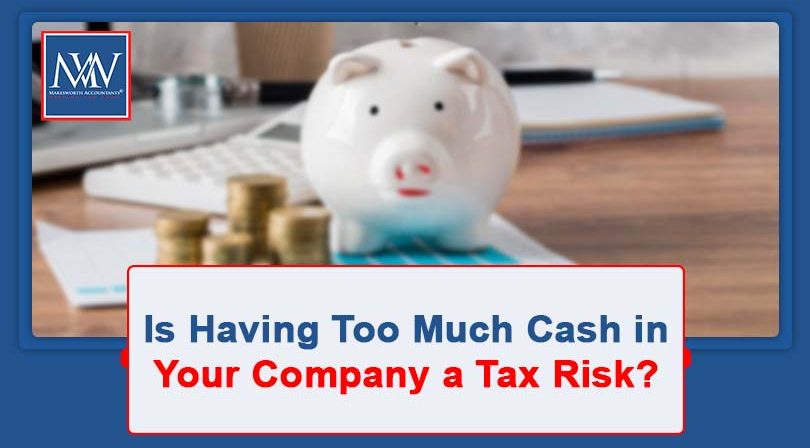
Is Having Too Much Cash in Your Company a Tax Risk?
While having more money in your bank account than is needed may seem ideal, for director shareholders of a company with surplus cash, it could be storing up future problems. The poor or non-existent interest rates for company bank accounts and the impact on shareholders’ ability to benefit from various tax reliefs, including Inheritance Tax Business Relief (formerly known as Business Property Relief), are potential consequences that should be considered and prepared for.
Initially, a cash surplus is likely to be retained profits rather than actual money in the bank. Some of the money may have been allocated to pay creditors, including future tax bills. If these liabilities have already been taken into account and there is cash available surplus to immediate needs after taking into account salary and maximum dividend payments, all potential and future liabilities and monies set aside for expanding the business, etc, then letting cash sit in a bank account is not effective tax planning.
Surplus cash on closure
Often companies build up large cash balances because the director shareholders do not want a large personal tax charge (which may result from paying dividends). The owners may be looking to withdraw the funds when the business is sold or closed. However, that may only be deferring the tax liability because treating a distribution as capital is only available on the company’s closure if the total amount paid to all shareholders is less than £25,000. Where the distributable amount exceeds this, the shareholders pay income tax at the dividend tax rates.
The situation where having a surplus company cash balance may impact tax planning is when considering Business Relief (BR). Ownership of a business, or share of a business, is included in the owner’s estate, although BR of either 50% or 100% (depending on the type of the business assets) is available. The worst-case scenario is that excess cash can affect the trading status of a business, turning it from a trading company to an investment company, which can result in BR being denied. In practice, HMRC believes that cash generated from ‘trading activities’ should not necessarily prejudice a company’s ‘trading‘ status. Any surplus cash would have to be actively ‘managed’ before it was considered a ‘non-trading or investment’ activity of the business. However, as soon as income from investments (including cash) exceeds trading income, the company is no longer a ‘trading’ company. Accordingly, BR will not be available on closure, and capital gains tax (CGT) will be charged at the usual rates on any amount withdrawn (i.e., for 2024/25 at either 10% for basic rate taxpayers or 20% for higher or additional rate taxpayers).
A large cash balance could also reduce the value of the company qualifying for BR by the value of the ‘excepted asset’ (an asset or cash not used wholly or mainly for business purposes in the previous two years), unless it can be shown that the cash was being retained for a specific and identifiable purpose.
Transfer of accumulated profits
If you can accumulate cash, navigate any IHT problems, and pass your company shares to a beneficiary on death, then from a CGT perspective, the beneficiary will effectively receive the accumulated profits tax-free. The reason for this CGT break is that the beneficiary receiving the shares is treated for tax purposes as having acquired them at market value on the date of death. Therefore, a beneficiary could wind up the company or sell it immediately after inheriting the company, taking the accumulated cash profits and there would be no CGT to pay.
Practical point
The most tax-efficient method of withdrawing surplus cash is by the company employer making pension contributions. The company can contribute to a director’s pension without the salary restriction that self-employed workers face. Contributions are tax-free up to £60,000 a year, with contributions above this limit subject to a tax charge.
Partner note:
HMRC guidance at IHTM25263 and SVM111150
IHTA 1984, s 105(3)
For more information, Book a Free Consultation
Need Accountancy Support?
For information on bespoke training, or if you have any other questions for Makesworth Accountant, please fill in your details below
















 151
151